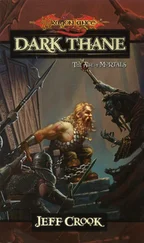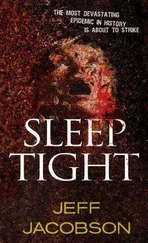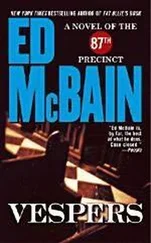Jeff Rovin - Vespers
Здесь есть возможность читать онлайн «Jeff Rovin - Vespers» весь текст электронной книги совершенно бесплатно (целиком полную версию без сокращений). В некоторых случаях можно слушать аудио, скачать через торрент в формате fb2 и присутствует краткое содержание. Жанр: Триллер, на английском языке. Описание произведения, (предисловие) а так же отзывы посетителей доступны на портале библиотеки ЛибКат.
- Название:Vespers
- Автор:
- Жанр:
- Год:неизвестен
- ISBN:нет данных
- Рейтинг книги:5 / 5. Голосов: 1
-
Избранное:Добавить в избранное
- Отзывы:
-
Ваша оценка:
- 100
- 1
- 2
- 3
- 4
- 5
Vespers: краткое содержание, описание и аннотация
Предлагаем к чтению аннотацию, описание, краткое содержание или предисловие (зависит от того, что написал сам автор книги «Vespers»). Если вы не нашли необходимую информацию о книге — напишите в комментариях, мы постараемся отыскать её.
Vicious bat attacks moving southward along the Hudson River prompt Nancy Joyce, a bat scientist who works for the Bronx Zoo, to investigate. When the attacks move into the New York subway system, Manhattan police detective Robert Gentry becomes involved. Joyce and Gentry team up to determine what is causing this unusual behavior. What they discover will keep listeners pinned to their seats and clawing for more.
Vespers — читать онлайн бесплатно полную книгу (весь текст) целиком
Ниже представлен текст книги, разбитый по страницам. Система сохранения места последней прочитанной страницы, позволяет с удобством читать онлайн бесплатно книгу «Vespers», без необходимости каждый раз заново искать на чём Вы остановились. Поставьте закладку, и сможете в любой момент перейти на страницу, на которой закончили чтение.
Интервал:
Закладка:
“Could be a short cut. Or sometimes they do it for ventilation, especially during the summer.”
“Amazing.” Joyce asked Arvids to keep the flashlight on the jagged hole. Stepping high and long over the third rail, she went over and examined it. There was no guano and no smell of guano coming from inside. She returned to the group. Gentry didn’t look happy.
“I was careful,” she said.
Gentry made a face. “Nothing there?”
“Nothing. Let’s go.”
They continued walking between the tracks.A third train passed. This time Joyce felt as if it was the intruder, not her.
It was not at all surprising to the scientist that the deeper they went into the tunnel, the more excited and contented she became. The act of creeping around had always made Nancy Joyce feel free. It probably came from growing up with a father and an older brother who liked war movies and Westerns. Some of Joyce’s earliest memories were of sitting on the floor to the side of a big TV. She would play with Colorforms or her Etch-a-Sketch and look up whenever the TV grew quiet. She didn’t like the shooting or talking parts, but she always watched when cowboys or soldiers crawled through the mud, crept under barbed wire, or moved stealthily around corners or mountainsides. Soon Joyce began creeping around by herself, daring her brother, Peter, to catch her, and then squeezing behind the sofa or under the piano bench where he couldn’t fit. But Peter’s armscould fit, and he usually dragged his sister out and punished her with a tickle attack to the sides and underarms. When Joyce was seven she began poking through the thick, nighttime woods on her own. There was something bold about taking each new step. Something a little claustrophobic about the dark. She realized much later that that was one of the reasons night appealed to her. Everything seemed so close, so intimate. Even the danger.
But…
There was always a but. While Joyce felt at home with the unknown, she hated not knowing things. And the past fifteen or so hours had severely tested her patience. When she was a graduate student at New York University, doing fieldwork with Professor Lowery-who also became her first lover, deep in a bat cave in the Pyrenees-the older man worried about her low threshold for frustration. He advised his pupil to look at puzzles with a relaxed mind, to view them as an opportunity to add something to the annals of science. Unfortunately, Joyce just couldn’t think like that.
“You doing okay?” Gentry asked.
His voice startled her. For a moment, Joyce felt as if she’d been alone. “I’m fine. Why?”
“Just making sure. A lot of things can get to you down here. Sore feet. Thirst. Nerves.”
“No, I’m good.”
Gentry put his hands on her shoulders and moved around her. He sidled up to Arvids. “How well does your radio work down here?”
“Depends on how far down you go or how many walls get between you and the operator. So far I’ve never had a problem. Why?”
“Just curious. We’ve had trouble with our radios with all the new construction in midtown. The layers of electronics going into offices and residential buildings are acting like walls. Say,” Gentry turned to Joyce, “you said on TV that bats aren’t bothered by microwaves.”
“That’s right.”
“What about electronic noise? Could a city full of it draw them to a place or disorient them?”
“Draw them, no. Most bats ignore any sound beyond an average radius of fifty yards. And within that radius they pay attention only to sounds made by fellow bats or potential prey or predators.”
“Do they listen the same way humans do,” Gentry asked, “or do they use those echos?”
“Mechanically, bat hearing is the same as human hearing, albeit much more sensitive. When they echolocate, they ignore other sounds, pretty much the way people do when they’re talking in a subway or at a bar. The rest of the time bats listen the way other animals do.”
Arvids asked, “If there are still any bats down here, will they hear us coming?”
“They can hear an insect walking on sand six feet away.”
“I guess that would make us sound like a brass band.”
“Fife and drum corps would be more accurate,” Joyce said. “If there are bats within a mile of here, they heard our breathing and heartbeats about the time we entered the tunnel. To answer your other question, Detec-Robert,” Joyce went on, “electronics can disorient bats. Certain kinds of tiger moth emit high-frequency clicks that turn the normal flow of echo information into gibberish. We’ve been able to duplicate those signals in a lab.”
“Stealth moths,” Arvids said. “Nature is amazing.”
“Totally,” Joyce agreed. “Electronics can also confuse bats, but only if they happen to replicate a known sound-for example, a baby bat calling to its mother or a female to a male. And once the bat got a look or whiff of the computer or fax machine or whatever it happened to be, and saw that it wasn’t a fellow bat or prey, it would break off at once.”
“Pretty clever creatures.”
“They’re one of a kind,” she said proudly. “Did you ever hear of Operation X-Ray?”
Gentry said he hadn’t.
“During the Second World War, the Allies came up with a plan to drop thousands of bats from high-altitude bombers over Japanese cities. Each bat was going to be equipped with a large wax capsule strapped to its back. As the bats flew down, their body temperature would slowly melt the wax. Inside the capsule was a highly flammable liquid that would ignite when exposed to air. The bats were trained to fly toward certain sounds-air raid sirens, railroad whistles, maritime bells. They were also conditioned to fly toward searchlights. The idea was that they’d roost in strategic buildings in Japanese cities, self-immolate, and burn the buildings to the ground.”
“You’re kidding.”
“No. And there was no way to stop the bats. At night, even the best sharpshooters would have had an impossible time trying to gun them down. And even then there was always the risk that a bullet would penetrate the wax, set the bat on fire, and accomplish the mission.”
Gentry said, “I can just imagine what you think of the plan.”
“Why? Because bats were dying?”
“Well, yes.”
Joyce shook her head. “I’m not an animal rights activist. I hate cats, I enjoy hunting and eating deer and boar, and I’m all for using mice as medical test subjects.I lost a father to brain cancer and a grandfather to pancreatic cancer. I’d rather lose mice.”
“Hear, hear,” Arvids said.
“Besides, the bats were bred especially for Operation X-Ray. I think the plan was inspired. By targeting specific buildings the military could save human lives on the ground and in the air.”
“So what happened?” Gentry asked.
“During test runs in the desert, several dozen bats proved to be smarter than the scientists who’d conditioned them. They flew off and returned to where they were trained-bats have an incredible homing sense-and burned down the barracks.”
“Stealth moths and commando bats,” Arvids said. “Man, even zoologists see more action than I do.”
It took nearly half an hour of moving slowly through the darkness before they came to where the maintenance worker had fainted. The mound of guano was lying beneath a girder, between two sets of tracks. Joyce took the flashlight from Arvids. She circled the mound slowly. Arvids put his hand in front of his mouth. Gentry winced.
“I’ve never seen anything like this,” Joyce said.
“Jesus,” Gentry said. “The size alone probably put the maintenance man out, once he realized what it was.”
“The size is incredible, but so is the singular consistency,” Joyce said. “This is not a typical bat mound. This is like something you’d find in the elephant cage at the zoo.”
Читать дальшеИнтервал:
Закладка:
Похожие книги на «Vespers»
Представляем Вашему вниманию похожие книги на «Vespers» списком для выбора. Мы отобрали схожую по названию и смыслу литературу в надежде предоставить читателям больше вариантов отыскать новые, интересные, ещё непрочитанные произведения.
Обсуждение, отзывы о книге «Vespers» и просто собственные мнения читателей. Оставьте ваши комментарии, напишите, что Вы думаете о произведении, его смысле или главных героях. Укажите что конкретно понравилось, а что нет, и почему Вы так считаете.











